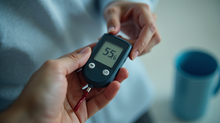Diabetes and COVID-19
- Maureen Sullivan RN, CDE, CEN
- Apr 18, 2020
- 2 min read

As this COVID-19 pandemic continues, persons with chronic illnesses have a heightened anxiety regarding their health and well-being. Persons who contract the COVID-19 virus AND have underlying medical conditions reportedly have a harder time recovering and a higher risk of complications. That being said, it warrants discussion as to what persons with diabetes can do to lower their risk of illness in general, as well as to the COVID-19 virus.
Persons with diabetes are not necessarily more likely to get COVID-19 illness any more than the general population. The issue is that if a person with underlying chronic medical conditions contracts the virus, they may have a more difficult time with recovery and be at a higher risk for complications. Viral illnesses in general can cause increased inflammation, fluctuating blood sugars, electrolyte imbalances due to poor intake of food and fluids, and dehydration due to febrile (fever) illness. The key to this pandemic; therefore, is the prevention of illness.
Safety precautions include frequenting handwashing, social distancing , and staying home (“self-isolating”). When possible, everyone should work from home, limiting outside trips only to grocery stores, and other essential appointments. Pay close attention for potential symptoms of COVID-19, including fever, dry cough, persistent pain or pressure in your chest, a bluish tint to your lips or face (indicating possible lower levels of oxygen in your blood) and shortness of breath. Notify your medical provider of your symptoms BEFORE heading to the office or hospital so arrangements are made for your safety should you be asked to go to an outside facility for treatment. This will ensure the lowest exposure risk for you and others. With regards to your diabetes management, have your glucose (blood sugar) readings, ketone reading (if you normally test for ketones) and food/fluid consumption report available to discuss with your medical provider.
Now is also the time to focus on your overall health and well-being. Stay hydrated, eat well balanced meals that meet nutrition goals, get adequate sleep and daily exercise, avoid smoking and alcohol consumption, and address any feeling of stress and anxiety. Although we are in the midst of a pandemic health crisis, many of us have also been given the gift of “time”- time to step back, reassess our lifestyles, make healthier choices, and focus on ourselves and family. Use this gift wisely.
References:
www.diabetes.org
www.cdc.gov/COVID19



































Comments